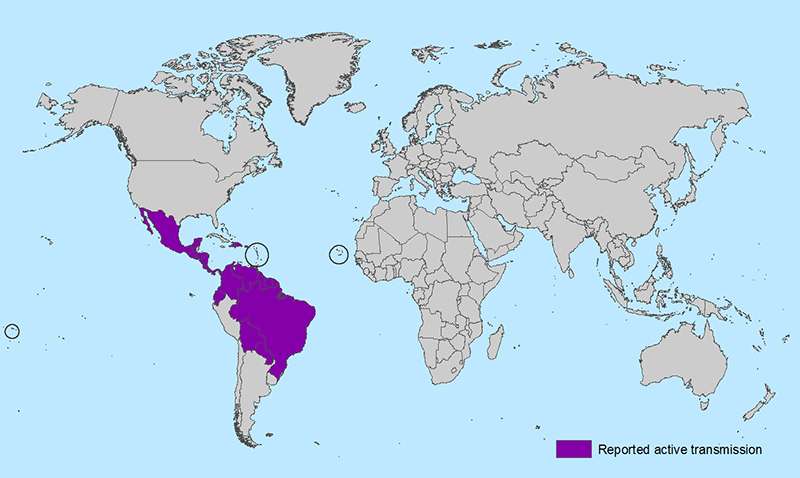The Zika virus – what do you need to know?

The Zika virus is an arbovirus infection transmitted by several different species of Aedes mosquitoes. In adults, the most common symptoms of Zika virus disease are fever, rash, joint pain, and conjunctivitis (red eyes) (CDC). Symptoms are usually mild with symptoms lasting from several days to a week and it is uncommon for it to require hospitalization. However, this isn't the case for newborns. The virus has been found to be highly neurotrophic, and has resulted in children being born with microcephaly, where they have smaller than normal brains. Within the span of a few months, there have been several thousand cases of children being born with microcephaly, and this is only the tip of the iceberg with the WHO predicting that three to four million people will be infected this year.
Today, the WHO will meet to decide whether they will formally declare this a "public health emergency of international concern," under the agency's International Health Regulations. This would mobilize resources and functions as a way of the WHO to prioritize the Zika virus, and mobilizes resources in member countries to find a cure as well as contain the virus. For an excellent history of the Zika virus (which dates back to 1947), check out this excellent read by David Quammen.
The virus itself is going to be very difficult to eradicate, and some have suggested it will be endemic. As stated by Laurie Garrett:
The prospect of a disease never previously seen in the Western Hemisphere taking hold permanently, and endangering thousands of babies every year, is chilling. Control efforts, like spraying insecticides and covering standing water, would be of no value inside tropical rainforests like the Amazon or swamplands such as the Louisiana bayous. Aggressive urban mosquito abatement programs would help reduce human infections, but the virus would keep coming back year after year, popping out of its remote hiding places. And in the end, the only hope for eliminating human disease would rest with the invention of an effective vaccine and mass, routine vaccination of hundreds of millions of people across the Western Hemisphere.
An interesting observation is this point is how many of the pieces I've linked to highlight the lessons learnt from Ebola, but they acknowledge this is a new threat with unique problems to overcome and address. For one, the virus carriers are asymptomatic. In addition, there's no vaccine available. Now individually, those aren't insurmountable problems – develop a vaccine, test it out, see if it works. But there's a wrinkle. The major outcome is microcephaly, which impacts pregnant women. As this Guardian article states, the ""The real problem is that trying to develop a vaccine that would have to be tested on pregnant women is a practical and ethical nightmare," added Mike Turner, head of infection and immuno-biology at the Wellcome Trust." (source)
Perhaps the most controversial aspect of the Zika virus however, has been the response of governments in affected regions. Since one of the major outcomes is in birth defects, several countries have been advocating for women to not get pregnant. This isn't the first time this has been suggested; this was also advocated as a way to prevent the spread of Rubella from mother to child. The issue then becomes, how can these governments propose women do not get pregnant if these countries do not have accessible contraception or legal options to terminate a pregnancy. On the positive side, however, there are advocates who are viewing this as an opportunity to change policy in a region where abortion is not available.
Now all of this is unfolding with two important things coming up on the horizon. The first is the change in the season. Right now, North America has been (relatively) spared as we're in our winter cycle. But as the days get warmer, the virus has a much higher likelihood of spreading further north. Second, Brazil is slated to host the 2016 Summer Olympics. Now, a lot can change between now and August 2016, but this is a big event with people from around the world in attendance.
We still don't know much about the Zika virus, but we're kilometers (or miles for our American readers) ahead of where we were when the outbreak first started a few months ago. With more international cooperation and collaboration between national health agencies, we should be able to make even more progress in the near future and ultimate develop a sustainable and appropriate strategy to tackle this emerging public health issue.
















